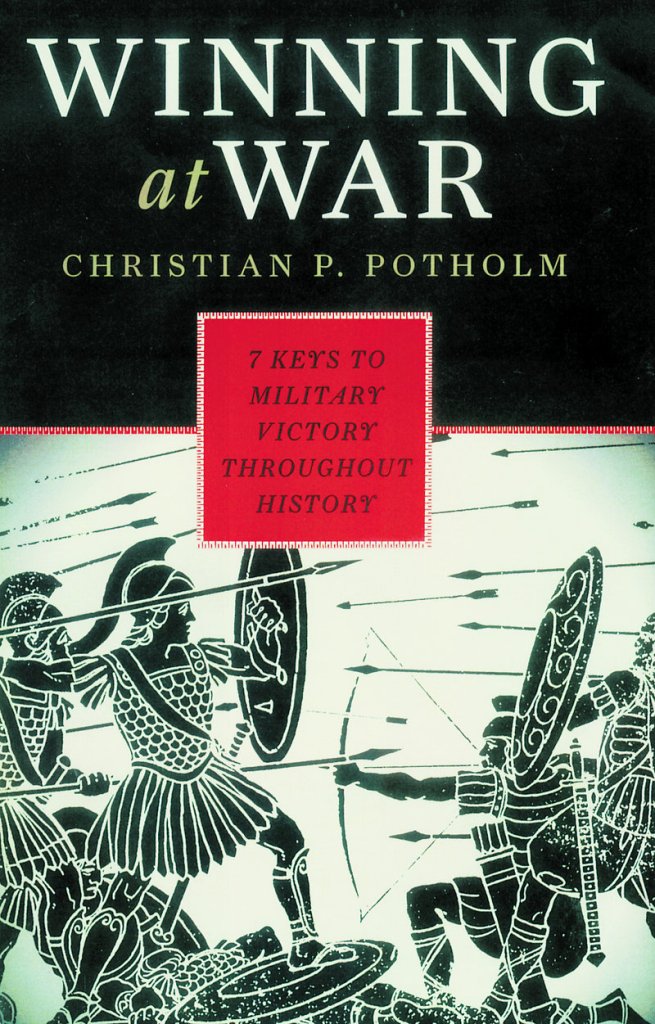Near the outset of his intriguing book “Winning at War: Seven Keys to Military Victory Throughout History,” Christian P. Potholm, professor of government at Bowdoin College, observes:
“As an undergraduate at Bowdoin, I did my senior honors thesis on the Battle of Stalingrad, much to the disgust of my history professors, who couldn’t imagine wasting a year of my scholastic life on a ‘mere battle!’
“I believe that, unfortunately this bias against battles and wars (indeed matters military) is still manifest today in much of academia with, I would argue, students being the intellectual losers.”
I could not agree more, though I suppose many of my friends will be upset by this contention: It is where I have always stood.
“Maine: The Pine Tree State from Prehistory to the Present” (University of Maine at Orono, 1995), the best modern book on our state, managed to avoid the war in Vietnam, and during World War I, the university even managed to abolish the teaching of German. In our time learning about war, learning about one’s adversary (at least in high intellectual circles) seems to have become distasteful, harmful and politically incorrect.
What an anti-intellectual load of junk. Potholm’s mournful numbers of 200 million civilians killed since World War I — 1.7 million dead a year, 4,630 a day — is a horrific butcher’s bill.
With admirable clarity of purpose, the author creates what he calls “the template of Mars,” a “pattern in warfare that must be followed in order for one to be consistently successful in war.” Potholm uses the literary device of pleasing Mars, the Roman god of war, and reaping the rewards. One of the seven keys to pleasing Mars and winning a war, according to Potholm, is the belief that there will always be another war.
That is a distasteful pill to swallow, and something that those who deeply yearn for peace do not want to hear or deal with. But it is, I believe, so integral a part of human nature that it must be confronted, debated and thoroughly understood.
Potholm’s knowledge of military history, from the general staff to the handiwork of the battlefield, is impressive. I am at a loss, for example, as to how I never knew about the Battle of Nomonhan (1939), an incident between Japan and the Soviet Union on the Mongolian-Manchurian line.
In a massive tank, artillery and air exchange, 20,000 Japanese were killed, wounded or captured by Russian Gen. Georgy Zhukov’s troops. Apparently, this humiliating defeat played a large part in changing the Imperial game plan in the direction of Southeast Asia and the western Pacific. Why is this missing from standard histories?
The reader is shown Napoleon and the usual suspects as models, but Potholm also explores far-flung fields and different cultures. For example, the rise of the Ama-Zulu clan from 1,000 people to more than a million in a lifetime was largely the work of the Zulu leader Chaka, who used the template of Mars to astonishing measure.
The template is applied to the United States’ “police action” in Korea, the British in Northern Ireland and other wars, actions, etc. Of course, the template works if it can be applied and not interfered with. It is theoretical.
Sustained ruthlessness, which does not suggest torture but certainly has the potential to turn in that direction, is something that will raise the hackles of the politically correct. And here is the rub.
If you want to win a war, build a boat or clean a chimney, you need to know how to go about it. If you want peace, you need to know how to go about it. Christian Potholm has studied the nature of war and how it has been successfully waged over the centuries. (Yes, weapons change, but the concept remains constant.)
The most difficult key to turn is “that there will always be another war.” As soon as a war is lost, plans for a new action arise, avoiding the previous errors and approaches. War, alas, is a very human trait that will take a long time to excise.
William David Barry is a local historian who has authored or co-authored five books, including “Tate House: Crown of the Maine Mast Trade” and the novel “Pyrrhus Venture.” He lives in Portland.
Copy the Story Link
Send questions/comments to the editors.



Success. Please wait for the page to reload. If the page does not reload within 5 seconds, please refresh the page.
Enter your email and password to access comments.
Hi, to comment on stories you must . This profile is in addition to your subscription and website login.
Already have a commenting profile? .
Invalid username/password.
Please check your email to confirm and complete your registration.
Only subscribers are eligible to post comments. Please subscribe or login first for digital access. Here’s why.
Use the form below to reset your password. When you've submitted your account email, we will send an email with a reset code.